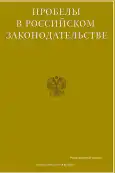Physical Training of Department of Internal Affairs Staff as a Factor of Increasing the Efficiency of the Fight Against Crime
- 作者: Kodzokov A.K.1
-
隶属关系:
- North Caucasus Institute for Advanced Studies (branch) of the Krasnodar University of the Ministry of Internal Affairs of Russia
- 期: 卷 15, 编号 5 (2022)
- 页面: 32-36
- 栏目: Articles
- URL: https://journals.eco-vector.com/2072-3164/article/view/531511
- ID: 531511
如何引用文章
详细
In this article, we studied the impact of the physical training of police officers on the performance of their official tasks and the fight against crime. We studied methods for improving the physical training of police officers, as well as the need to study the methods of struggle and forceful detention of criminals. It was established that an important role in physical training is played by the training of police officers in hand-to-hand combat, wrestling and forceful detention of offenders. Each employee must have the ability, if necessary, to resort to the use of brute physical force and prevent the commission of a crime, as well as to possess the skills of forceful detention of the offender. If, in the process of education and training of police officers, attention is not paid to their physical indicators and the ability to use the skills of fighting and combat, this can directly affect the resolution of cases and bringing the perpetrators to justice. When detaining an offender, there is a high probability that he will comply with the legal requirement of an authorized person, and will also resist detention and arrest. In such a situation, the officer must, first of all, adequately assess the situation, the psychological and mental state of the offender. He may be in a state of alcoholic or drug intoxication and thereby pose a threat to the life and health of the employee and surrounding civilians. Also, the offender may be armed with a knife, firearms or other items with which he can cause significant damage to the health of employees during detention. Both male and female employees need to develop self-confidence, their strengths and skills in forceful detention, as well as the absence of fear of pain or injury. Each of them must be aware that no matter how the operational situation unfolds, the offender must be arrested in order to bring him to justice. Otherwise, the criminal will go unpunished, and the feeling of impunity will push him to commit more serious crimes.
全文:
作者简介
Aznaur Kodzokov
North Caucasus Institute for Advanced Studies (branch) of the Krasnodar University of the Ministry of Internal Affairs of Russia
Email: kodzokov.aznaur@bk.ru
Cand.Sci.(Pedagogics), police major, Senior Lecturer of the Physical Training Department Nalchik, Russia
参考
- Voronchikhin D.V., Zalesova O.V. Physical training as a guarantee of successful fulfillment of operational and service tasks of Russian police officers in their professional activities // In the collection: Actual problems of the educational process in the discipline "Physical training (culture)" in a higher educational organization. Proceedings of the All-Russian Scientific and Practical Conference. Edited by A.N. Volkova, S.V. Kuznetsova. 2019. pp. 40-42.
- Gusev Yu.M., Pozdnyakov A.P., Domracheva E.Yu., Ilyakhina O.Yu. Physical training as a means of forming the psychological readiness of police officers to conduct martial arts with offenders // In the collection: Modern problems of physical culture, sports and youth. Materials of the III regional scientific conference of young scientists. Edited by A.F. Syrovatskaya. 2017. pp. 86-89.
- Gushchin D.M. Physical training of police officers // In the collection: Issues of the activities of services and divisions of the internal affairs bodies of the Russian Federation. Collection of scientific papers of the interdepartmental scientific and practical conference April 8, 2020. 2020. pp. 140-142.
- Zolotukhin D.V., Egorov S.N. Physical training as one of the components of professional training of police officers // In the collection: Issues of improving the tactical and special training of law enforcement officers. Collection of scientific articles following the results of the III All-Russian Conference. 2020. pp. 298-301.
- Kan L.V., Stepantsova M.V., Egorov A.V. Physical training of police officers as one of the criteria for professional training // In the collection: Improving the training of law enforcement officers. Collection of scientific articles following the results of the scientific-practical conference. 2021, pp. 63-67.
- Kanukoev A.M. Professional-applied physical training of police officers: organizational and methodological aspect // Physical culture and health. 2022. No. 1 (81). pp. 16-19.
- Obukhov A.A., Makarov V.M., Nasonov A.E., Nosov S.A. Physical training as a component of the daily activities of employees of the Internal Affairs Department of the Russian Federation // Izvestiya of the Tula State University. Physical Culture. Sport. 2020. No. 10. pp. 58-63.
- Parshin S.V. Physical training of police officers as one of the factors for increasing the effectiveness of the fight against crime // In the collection: Education, science and practice in ensuring the rights of citizens and the fight against crime. Collection of materials of the All-Russian scientific-practical conference. Far Eastern Law Institute of the Ministry of Internal Affairs of the Russian Federation. 2016. pp. 162-163.
- Slobodchikova T.A. Physical training as a leading section of the professional training of police officers // In the book: Personnel training for law enforcement agencies: modern trends and educational technologies. Collection of materials of the twenty-second All-Russian scientific and methodological conference: in 2 volumes. 2017. pp S. 156-158.
- Tashchiyan A.A. Physical training in the professional activities of police officers // In the collection: Improving the physical training of law enforcement officers. Collection of articles of the All-Russian round table. Editorial Board: S.N. Barkalov [i dr.]. 2020. pp. 202-204.
- Shilikhin A.S., Goryacheva D.G. Physical training as one of the most important aspects of the training of police officers // In the collection: Disclosure and investigation of crimes: problems and ways to solve them. Collection of articles of the International scientific-practical conference. 2017. pp. 159-162.
补充文件










